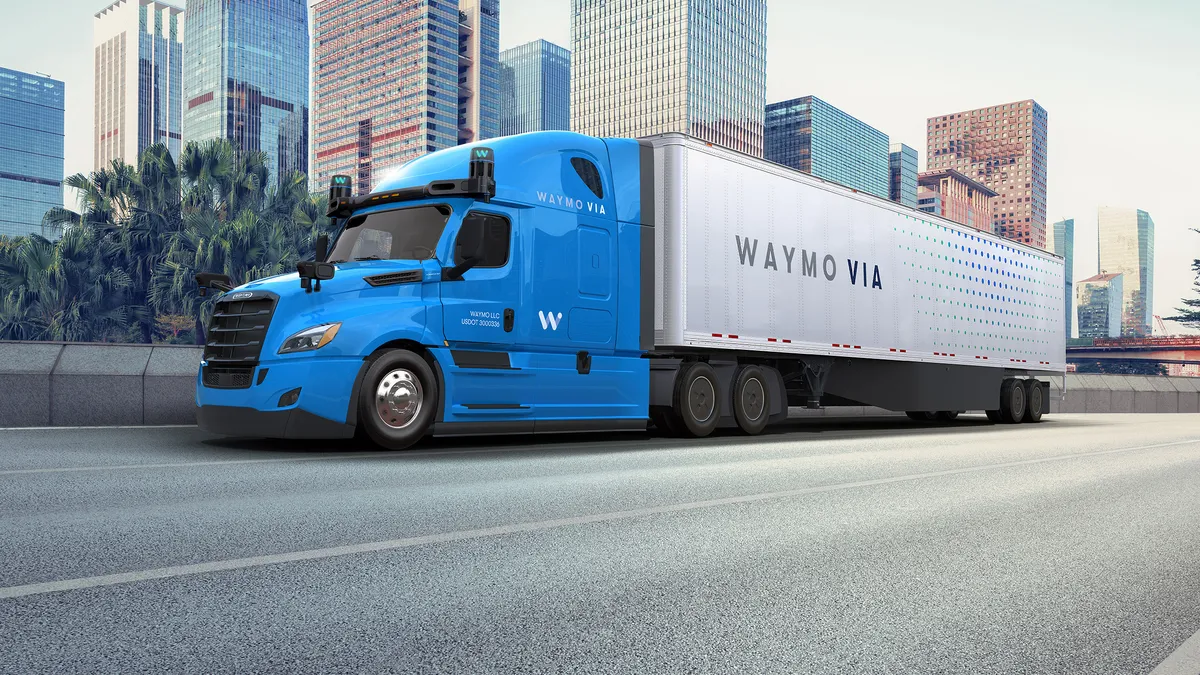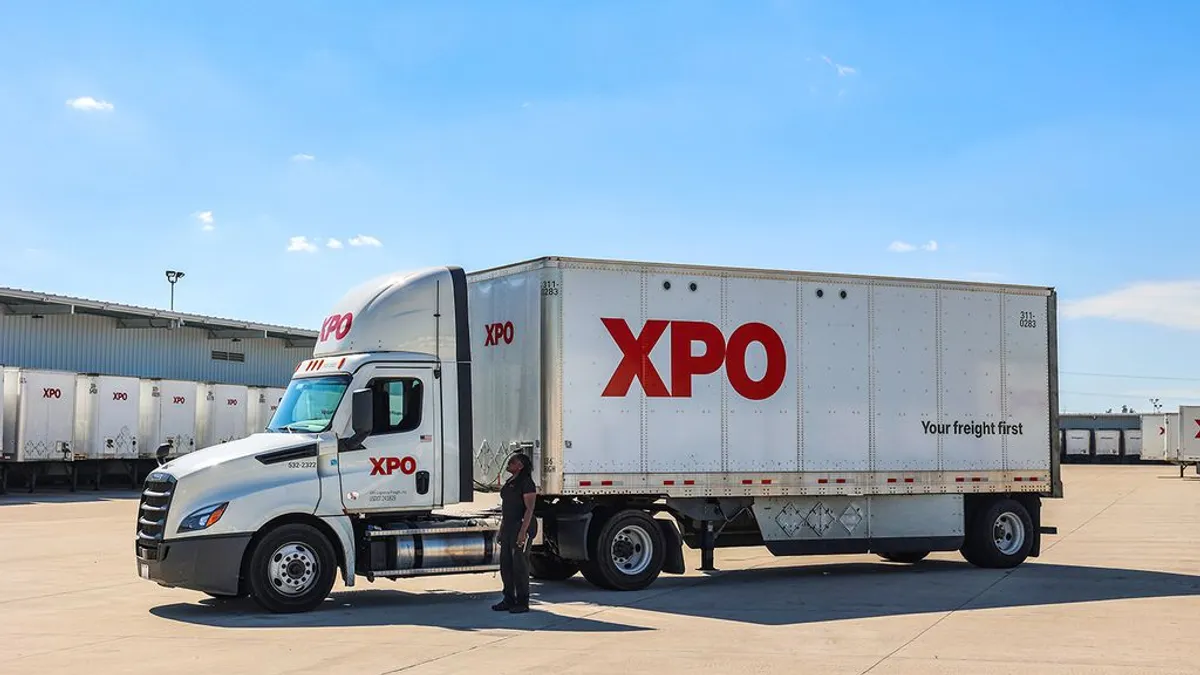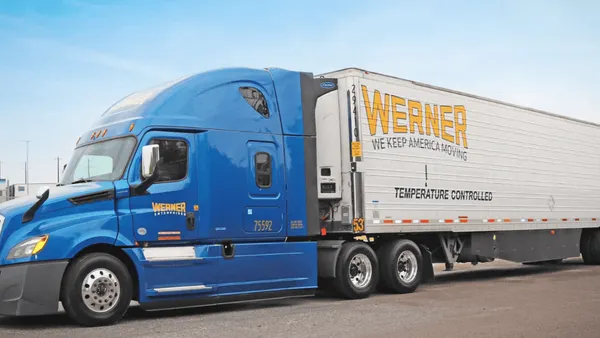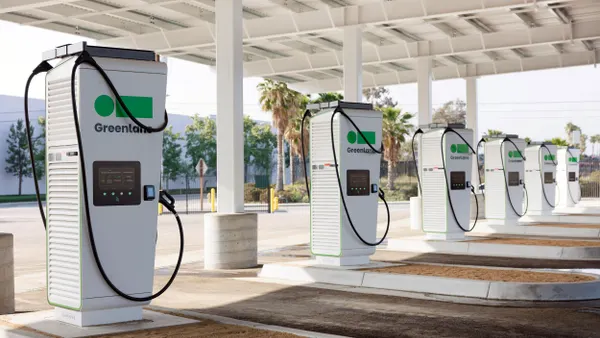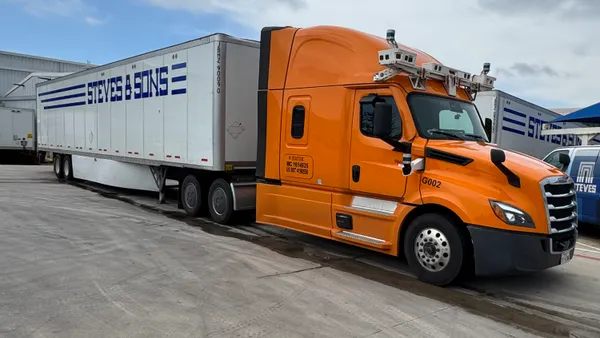Dive Brief:
- Waymo will test autonomous trucks on public freeways across Phoenix and the I-45 corridor between Dallas and Houston in coming weeks, the company told Transport Dive Aug. 26.
- A person will sit in the driver’s seat for the testing, but it’s pursuing level 4 autonomy in which an individual isn’t required, according to the company.
- This testing of the Waymo Driver platform in Class 8 trucks is “an important step forward for the widespread deployment of autonomous trucks and the AV trucking industry,” Waymo spokesperson Julia Ilina said in a statement.
Dive Insight:
The road tests are another milestone in Waymo’s pursuit of creating commercially available redundant systems.
“Today you can’t order or easily build a truck with all of the redundant safety features necessary for fully autonomous driving, such as redundant braking and steering,” Ilina said, likening the capabilities to back-up power systems for airplanes and hospitals.
Waymo has been working on truck technology for years, piloting it in 2019 for the first time. Its partnership with Daimler Truck and the company’s Freightliner Cascadia, which began in 2020, rolled out redundant capabilities in 2021.
Waymo, an Alphabet subsidiary, projects that its autonomous feature will be available to U.S. fleet customers in coming years.
With the testing, companies are touting safety systems and features. In May, Kodiak demonstrated its system’s ability to pull over when there’s a problem. In December, TuSimple completed what it described as the world’s first fully autonomous semi-truck run in Arizona, where a Class 8 truck traveled streets and highways without a person traveling inside it.
Despite those milestones, problems have still occurred. A TuSimple truck hit a highway barrier in Arizona in April when a test driver and safety engineer tried to re-enter autonomous mode, the company acknowledged on a Q2 earnings call. Across autonomous vehicles as a whole, 129 crashes occurred from July 2021 through April 2022, according to a federal report.
The TuSimple incident prompted the company to investigate, determine the cause and upgrade its systems, CEO Xiaodi Hou told investors on the call. “In the past seven years, we've had 8.1 million miles of on-the-road testing and precisely one incident that TuSimple truck is responsible for,” he said.



